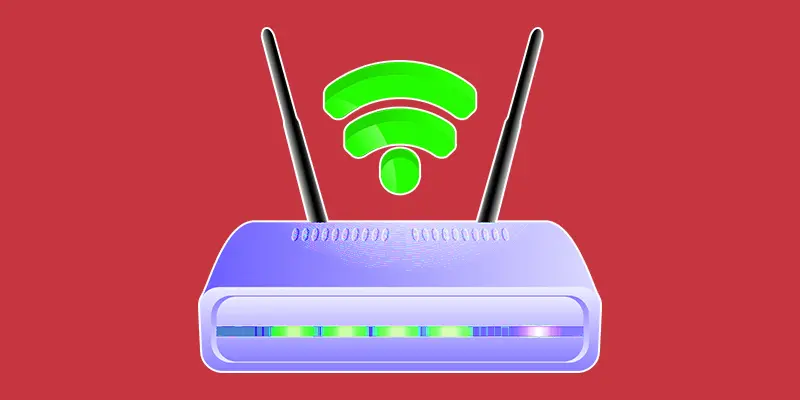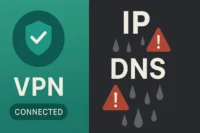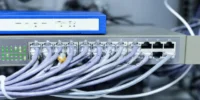Why Is Cloud Infrastructure Monitoring Essential for Healthcare IT?
Published: 6 Aug 2025
Tech innovation is taking place in every sector, including healthcare. Earlier, all
essential information in healthcare systems was either organized in paper documents or
in Excel or Word files on a computer. This was one of the reasons indicating a delay in
healthcare operations. However, the advent of cloud infrastructure in the sector has
transformed the industry to a new level.
Now, healthcare professionals have access to the required information with ease. They
do not have to waste their time slipping papers and finding them. Cloud not only aids in
improving accessibility, but also enhances security. Now, the medical data is stored and
shared in a new and modern way.
However, like every infected patient needs medicine, healthcare cloud-based IT systems
require monitoring to perform efficiently. This is one of the most essential aspects that
should be completed with due diligence by healthcare professionals. If one neglects the
importance of cloud monitoring, they can face harmful impacts from data breaches to
performance issues. Hence, it is wise to conduct continuous cloud monitoring of the IT
infrastructure.
This blog advocates for the “why” behind the importance of cloud-based healthcare
systems monitoring. You must read this blog throughout so you never miss this critical
practice.
Overview of Cloud Infrastructure Monitoring
Do not mix it with cloud computing services; cloud monitoring is different. Computing
offers server, storage, and other related services that are required to stay current in the
cloud. But, cloud infrastructure monitoring is the oversight of the assets placed in the
cloud in a timely manner.
The process upholds a greater importance among businesses using cloud services to
run their operations with efficiency, without disruptions. Just like your web or mobile
solution requires monitoring, cloud services also need it to deliver better performance,
security, and accessibility.
Simply put, cloud infrastructure monitoring is the process of assessing and evaluating
the health of cloud-based services opted for by a business. The service providers who
monitor cloud improve its effectiveness to meet the needs of the current pace.
Why is Cloud Infrastructure Monitoring Required forHealthcare IT?
When it’s new, every system will perform better. But over time, it requires an overhaul
to maintain the pace. In healthcare EHRs, EMRs, and other related services, data is
placed on the cloud to remove stress from the on-premise networks and gain better
accessibility and performance. In the beginning, everything was working fine, but why
does it work relatively slowly after a period? It may be due to the lack of monitoring of
cloud services.
1. Better Performance
Over time, cloud-based healthcare IT solutions have performed relatively slower than
expected. You must have experienced this. Slower performance can degrade the
importance of your healthcare-specific digital solution among patients. So, what’s the
option to improve the performance and make it current to the needs of professionals,
patients, and others?
Cloud monitoring is the practice that you must opt for to improve the performance bar
of your cloud-based EHR, EMR, or other telemedicine solutions. The professionals will
assess performance metrics and remove the bottlenecks by making your healthcare
solution up and ready to deliver better performance.
2. Improved Accessibility
You might not want your healthcare-specific cloud solution’s service to be less
accessible for others. This creates potential barriers for data sharing, communication,
and collaboration. As a result, it will ultimately reduce the efficiency of your healthcare
service among users.
Also, when the workflow is disrupted, this can potentially harm patient care. Here, cloud
Monitoring is the potent solution that you must undertake to improve the accessibility
of your cloud-transferred healthcare IT solutions.
3. Toughen Security Measures
Healthcare IT systems have sensitive users’ data, like their names, phone numbers,
addresses, and other details. It is crucial to safeguard them. Moving this data to the
cloud is a security-focused step. But data breaches and other related cyberattacks can
happen, which will eventually impact the operations. Cloud monitoring will aid in
overcoming these attacks with advanced and future-focused security measures. This
process will not only safeguard your data from malicious practices but also ensure
compliance with relevant regulations.
4. Real-Time Incident Detection
One of the benefits of cloud infrastructure monitoring for healthcare IT systems is that
it enables the detection of issues that could hinder your operations later on. Based on
the assessment, you will get a detailed report and apply fixation to the issues that could
escalate. Cloud monitoring aids with prompt identification and resolution.
5. Scalability
As a healthcare specialist, you must be aware of unexpected surges in patient volume.
This requires the flexibility up or down as per the patient’s demands. You must need a
solution that can handle the unexpected rises or falls prominently.
Through cloud monitoring, this can be done with precision. You have to invest in this
service to ensure better flexibility or scalability of your healthcare IT systems. It aids
with smooth scaling (up or down) without disrupting what is being performed, allowing
the system to handle the load efficiently.
6. Cost Optimization
Cloud monitoring helps you optimize the cost of your cloud-based infrastructure. But
how can this aid in cost optimization? This is because healthcare organizations can
track their resource utilization (hardware, software, CPU, and more) and optimize the
deployment of health resources. This way, you will aid in over- or under-provisioning.
7. Disaster Recovery
Moving to the cloud can overcome the fear of disaster and the recovery of lost data. But
what if data from the cloud vanishes or becomes inaccessible? Yes, this can happen if
you do not take cloud monitoring seriously. This process ensures that backup and
recovery systems are functional and ensure business continuity even in times of failure,
such as natural disaster or network disruption.
Conclusion
The blog discusses the importance of cloud monitoring for your healthcare IT systems.
This proactive approach is crucial in improving patient care by uplifting security,
performance, and accessibility. However, it is different from other cloud models; the
benefit it yields for your healthcare organization will improve user experience by
managing risks. Also, cloud monitoring is not for one-time use; it’s a regular process
that, if implemented effectively, offers the benefits your system is missing. So, invest
wisely in cloud monitoring and upscale the efficiency of your cloud-based healthcare IT
systems.
| Author Bio |
|---|
Aliona is a skilled cloud specialist with years of experience in cloud computing and |

- Be Respectful
- Stay Relevant
- Stay Positive
- True Feedback
- Encourage Discussion
- Avoid Spamming
- No Fake News
- Don't Copy-Paste
- No Personal Attacks

- Be Respectful
- Stay Relevant
- Stay Positive
- True Feedback
- Encourage Discussion
- Avoid Spamming
- No Fake News
- Don't Copy-Paste
- No Personal Attacks





